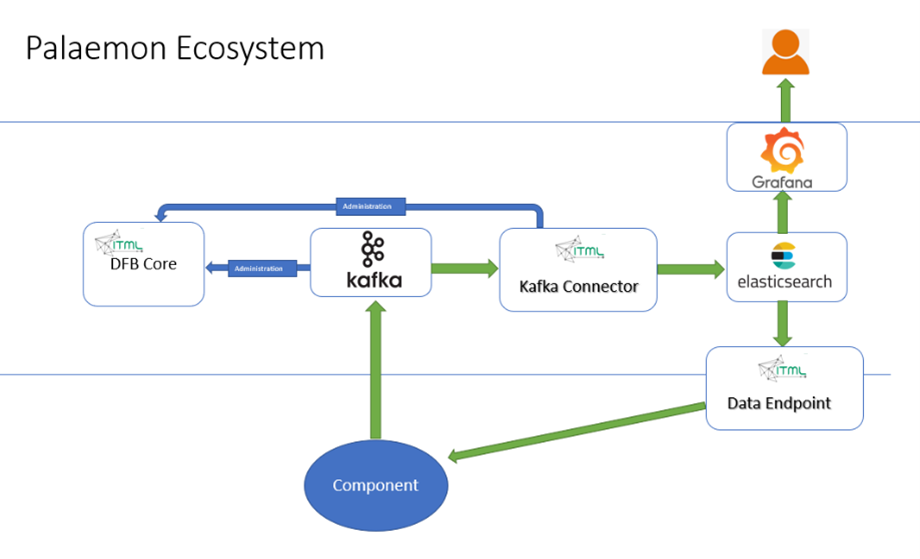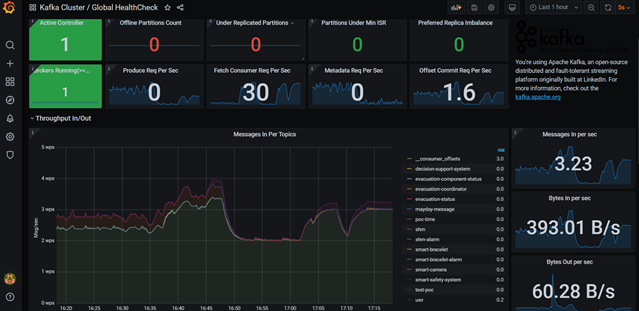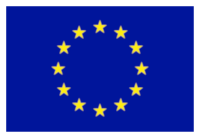The beginning of the 21st century is definitely characterized by the revolution of digitization in every spectrum of our lives. During the last few years, numerous changes and transformations have taken place in several industries, in every outdated process and tool.
The maritime sector is for sure one of the examples that have not yet faced the most significant changes but is currently under radical adjustments for several reasons. The energy consumption, the scrubbers, the oil price, and the ship legacy systems to name but a few, as well as the massive need of logistics and transportation of goods globally during the pandemic era, turn the attention of transformation forces of small, medium and big enterprises into the shipping industry.
Through the PALAEMON project, we have the vision to support the safety of passengers by providing a holistic solution for the evacuation of high-capacity passenger ships. Moreover, we aim to address the increased need for advanced passenger ship evacuation methodologies by defining a new ICT framework and radical rethinking of mass evacuation systems. Specifically, a smart digital on-board ecosystem will be developed by combining sophisticated ICT toolkits such as: Decision Support System (DSS), Ship Stability Toolkit, Ship Health Monitoring, Weather Forecast Toolkit, SRAP, PIMM, VDES, Safety Management System, Evacuation Coordinator, Smart Risk Assessment platform, Sensors, Smart Bracelets, Smart Cameras, Unmanned Aerial Vehicle (UAV), AR Glasses, Smartphone App, along with the ship legacy systems. The PALAEMON ecosystem will be able to generate operation plans in real-time; the execution of these plans will be linked with the PALAEMON DSS and will also consider effects of actions, unexpected events, and any new information that can contribute to validation, refinement, or reconsideration of the plan like mapped future environmental states.
In that perspective, ITML’s Data Fusion Bus (DFB) will act as the cornerstone of the PALAEMON ecosystem by providing a trustworthy way of transferring data between the connected components and also acting as permanent storage of data. DFB comprises the following subcomponents:
- A Kafka message broker
- An Elasticsearch cluster
- The DFB core
- Data Endpoint
- Grafana dashboard

Initially, Kafka acts a message broker allowing intercommunication of components in real-time. It offers higher fault tolerance in comparison to traditional message brokers, supporting significantly higher throughput. Furthermore, the usage of certificates supports encryption, authentication and authorization. These certificates ensure that data transfer between the component and the Apache Kafka is encrypted, thus making it more secure, and also preventing unauthorized devices from sending data.
The secured data collected in the central Kafka broker is persisted in an Elasticsearch cluster. To provide access to the historical data, a Rest service called Data Endpoint is provided for retrieving data from the Elasticsearch cluster. Data Endpoint supports data retrieval per topic and can be parametrized with time ranges, paging or results and full text searches.
DFB core (exposes an API) is used to manage component authentication and authorization, and monitor ES and Kafka health and utilization.

During the 1st Proof-of-Concept (PoC) demonstration, PALAEMON consortium validated the proposed technology through three different Scenarios/Use cases of Fire, Grounding and an accidental fall in the deck of the ship. ITML’s DFB, was deployed in a Cloud Virtual Machine and played the crucial role of the middleware and data storage among all the aforementioned components and services. Finally, DFB was indeed able to handle all the complex critical events from all data sources that took place during the PoC.

The ultimate scope of the project will be validated during the final PoC demonstration that will be showcased in a real scenario in ANEK’s Hellenic Spirit. This will be to improve the overall ship real time inspection and evacuation performance in order to create an intelligent and robust autonomous evacuation solution, by offering a wide variety of tailored ship-based information services as a commercial product/service/solution in the maritime market.
If you are interested in learning more about the PALAEMON project, please contact us at:
Nikolaos Arvanitis | nikosarban@itml.gr

This project (PALAEMON) has received funding from the European Union’s Horizon 2020 research and innovation programme under grant agreement No 814962.
The opinions expressed in this document reflect only the author’s view and reflects in no way the European Commission’s opinions. The European Commission is not responsible for any use that may be made of the information it contains.
